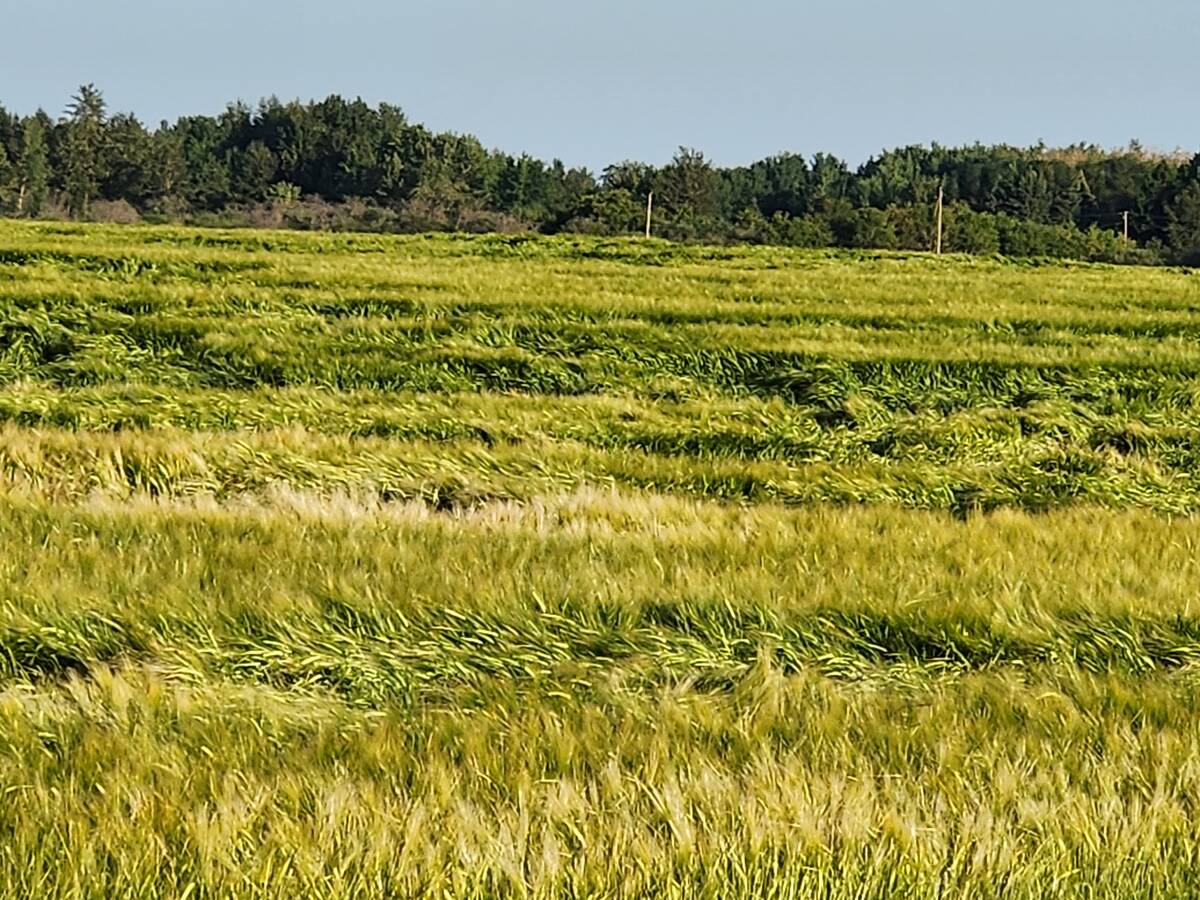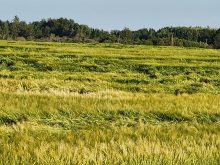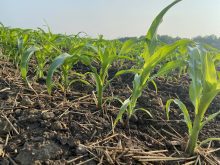Australia’s 2008-09 soybean harvest will be the largest in two decades while its canola harvest will rise by half, the Australian Oilseeds Federation said in a crop report Jan. 20.
The federation forecast the 2008-09 soybean harvest to rise to 128,220 tonnes from 34,730 tonnes the previous harvest, when drought cut plantings.
AOF said there was some upside potential to its soybeans estimate as some areas were still to be planted and yields might increase if growing conditions remain favourable.
The canola crop was estimated at 1.615 million tonnes, up 51 per cent on the 2007-08 crop of 1.069 million tonnes. AOF also forecast sunflower production of 62,800 tonnes, down from 73,000 tonnes a year earlier, due to lower plantings.
Read Also

Cereal lodging isn’t just a nitrogen problem
Lack of copper in the soil can also lead wheat and other cereal crops to lodge during wet seasons on the Canadian Prairies.
For wheat, wet weather at harvest time in parts of northeastern Australia meant some losses or quality downgrades for a crop that’s estimated at around 20 million tonnes.
Farm group PrimeAg Australia Ltd., now the country’s fourth-largest wheat grower, said Jan. 20 it harvested 43,000 tonnes from its farms in eastern Australia, less than pre-harvest expectations of a 55,000 tonnes crop.
PrimeAg’s chairman Peter Corish said unfavourable harvest conditions meant about 50 per cent or 22,000 tonnes of the crop was downgraded in quality.
Wet weather also interrupted harvesting in western Australia, the country’s top wheat-exporting state, extending the harvest in the state’s south into January.
Australian Crop Forecasters estimates about eight million tonnes of wheat will be harvested in western Australia, and 20 million tonnes across the country, up from the previous season’s 13 million tonnes.














